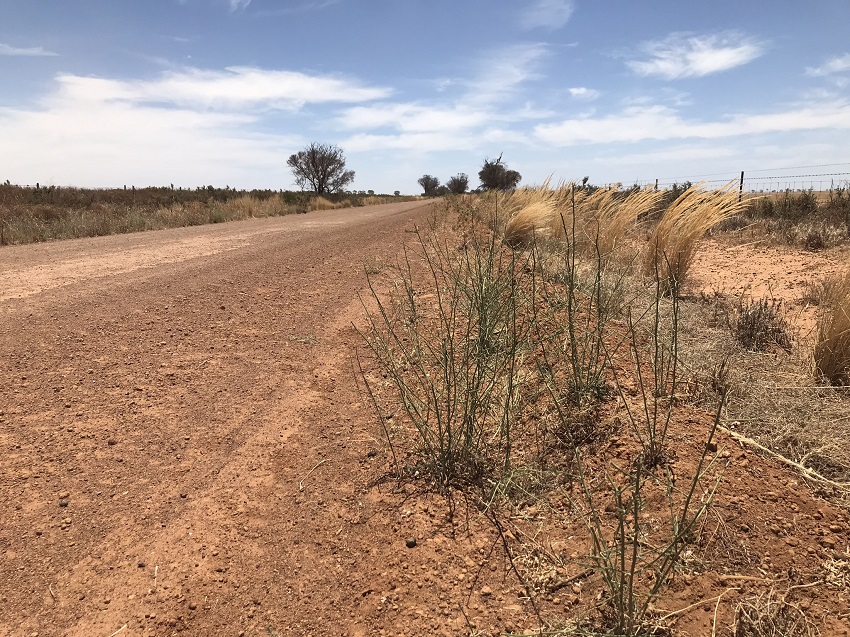
Now is the optimum time for Grainbelt landholders to survey their properties for the declared pest, skeleton weed.
Landholder monitoring supports the Department of Primary Industries and Regional Development’s (DPIRD) Summer Searching Program, which this year will cover more than 400,000 hectares.
Acting DPIRD project manager Paul Manera said it was important to check and re-check paddocks for the weed.
“Skeleton weed is a particularly vigorous plant, which can grow up to 20 centimetres a week and can set seed within days of flowering – producing even more plants,” he said.
“Landholders who have paddocks that have been infested with skeleton weed in the past, particularly, are urged to continue monitoring them, preferably monthly, throughout summer and autumn and to treat any infestations as soon as possible.”
The department and seven Local Action Groups are progressing well through this year’s targeted surveillance program, covering 200 properties using traditional vehicle searching and drones.
“This year’s program is encountering typical conditions and sightings,” Mr Manera said.
“The season so far has had some slight delays, due to the size of harvest this year, however, we are now tracking towards meeting our targets.”
The Skeleton Weed Program’s activities are funded by growers through the Grains, Seeds and Hay Industry Funding Scheme.
Skeleton weed is easily distinguished by its bright yellow daisy-like flowers during summer and autumn, with upright and usually leafless stems, which gives the plant its ‘skeletal’ appearance.
Suspect skeleton weed plants should be reported to DPIRD using the MyPestGuide Reporter app or to the department’s Pest and Disease Information Service on (08) 9368 3080 or padis@dpird.wa.gov.au, including photographs and location details.
If the report is confirmed as skeleton weed, DPIRD staff will investigate further and contact landholders to provide assistance and ongoing support, until the weed is eradicated from their property.
For more information about the Skeleton Weed Program visit www.agric.wa.gov.au/skeletonweed, email skeletonweedprogram@dpird.wa.gov.au or contact a Local Action Group.
Picture caption: Now is the best time of the year for Grainbelt landholders to survey paddocks for the declared pest, skeleton weed and report observations to DPIRD.
Media contacts:
Paul Manera, a/skeleton weed project manager +61 (0)8 9690 2113
Megan Broad/Katrina Bowers, media liaison +61 (0)8 9368 3937


